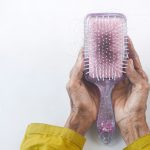What Is The Significance Of Donor Hair Quality In Hair Transplant Procedures?

Donor hair quality plays a pivotal role in determining the success and satisfaction levels of hair transplant procedures. The quality of hair obtained from the donor area is a critical factor that significantly impacts the final aesthetic outcome and overall patient happiness. High-quality donor hair not only ensures better transplantation results but also contributes to the natural look and feel of the transplanted hair, leading to enhanced patient confidence and self-esteem.
Factors Affecting Donor Hair Quality
Various factors influence the quality of donor hair, encompassing aspects such as hair density, texture, color, and overall health. Hair follicles with superior quality are more likely to survive the transplantation process, thrive post-procedure, and integrate seamlessly into the recipient area. Factors like genetic predisposition, age, hormonal balance, and lifestyle choices also play a role in determining the quality of donor hair, making it essential for surgeons to assess these factors comprehensively before proceeding with a hair transplant.
Impact on Transplant Results
The quality of the donor hair has a significant impact on the final appearance and success of the hair transplant procedure. Higher quality donor hair translates to a more natural, fuller, and dense-looking result, contributing to improved coverage and overall aesthetic appeal. Patients with superior donor hair quality often experience more satisfactory outcomes, with hair that blends seamlessly with their existing hair, creating an undetectable and harmonious appearance. Therefore, ensuring optimal donor hair quality is paramount for achieving successful and aesthetically pleasing transplant results.
Ensuring Optimal Donor Hair Quality
Attaining and maintaining optimal donor hair quality requires meticulous attention to detail throughout the hair transplant process. From the initial assessment of the donor area to the harvesting and transplantation of follicular units, careful consideration must be given to preserving the integrity and viability of the donor hair. Surgeons employ advanced techniques and instruments to minimize trauma to the donor area and ensure the highest quality grafts are obtained for transplantation. Additionally, post-operative care and follow-up play a crucial role in nurturing the transplanted hair follicles, promoting healthy growth, and maximizing the aesthetic outcome. By prioritizing optimal donor hair quality and employing best practices in hair transplantation, surgeons can enhance the success rates and overall satisfaction of their patients.
Patient Satisfaction
Beyond the technical aspects, the quality of donor hair significantly influences patient satisfaction and overall experience with the hair transplant procedure. Patients who undergo hair transplantation often have specific aesthetic goals and expectations, seeking natural-looking results that seamlessly blend with their existing hair. High-quality donor hair contributes to achieving these goals, resulting in greater patient satisfaction, increased confidence, and improved quality of life. Conversely, poor donor hair quality may lead to suboptimal outcomes, dissatisfaction with the results, and the need for additional corrective procedures, highlighting the importance of selecting an ideal donor area with high-quality hair follicles.
Long-Term Durability
Another crucial aspect of donor hair quality is its long-term durability and resilience against further hair loss. While hair transplant procedures offer a permanent solution to hair loss in the recipient area, it’s essential to consider the potential for ongoing hair loss in other areas of the scalp. Opting for donor hair of superior quality, characterized by robust follicles with strong genetic resistance to hair loss, can enhance the longevity of the transplant results and minimize the risk of future thinning or balding. By strategically selecting donor hair with optimal durability, surgeons can provide patients with long-lasting and sustainable outcomes, reducing the need for additional interventions over time.
Joseph Mandell
Mandell is currently working towards a medical degree from the University of Central Florida. His main passions include kayaking, playing soccer and tasting good food. He covers mostly science, health and environmental stories for the Scientific Origin.










